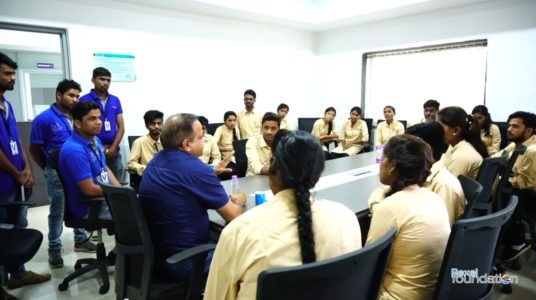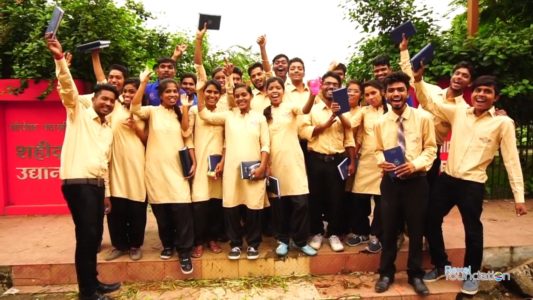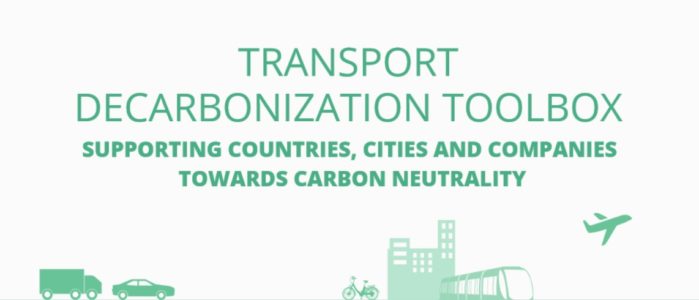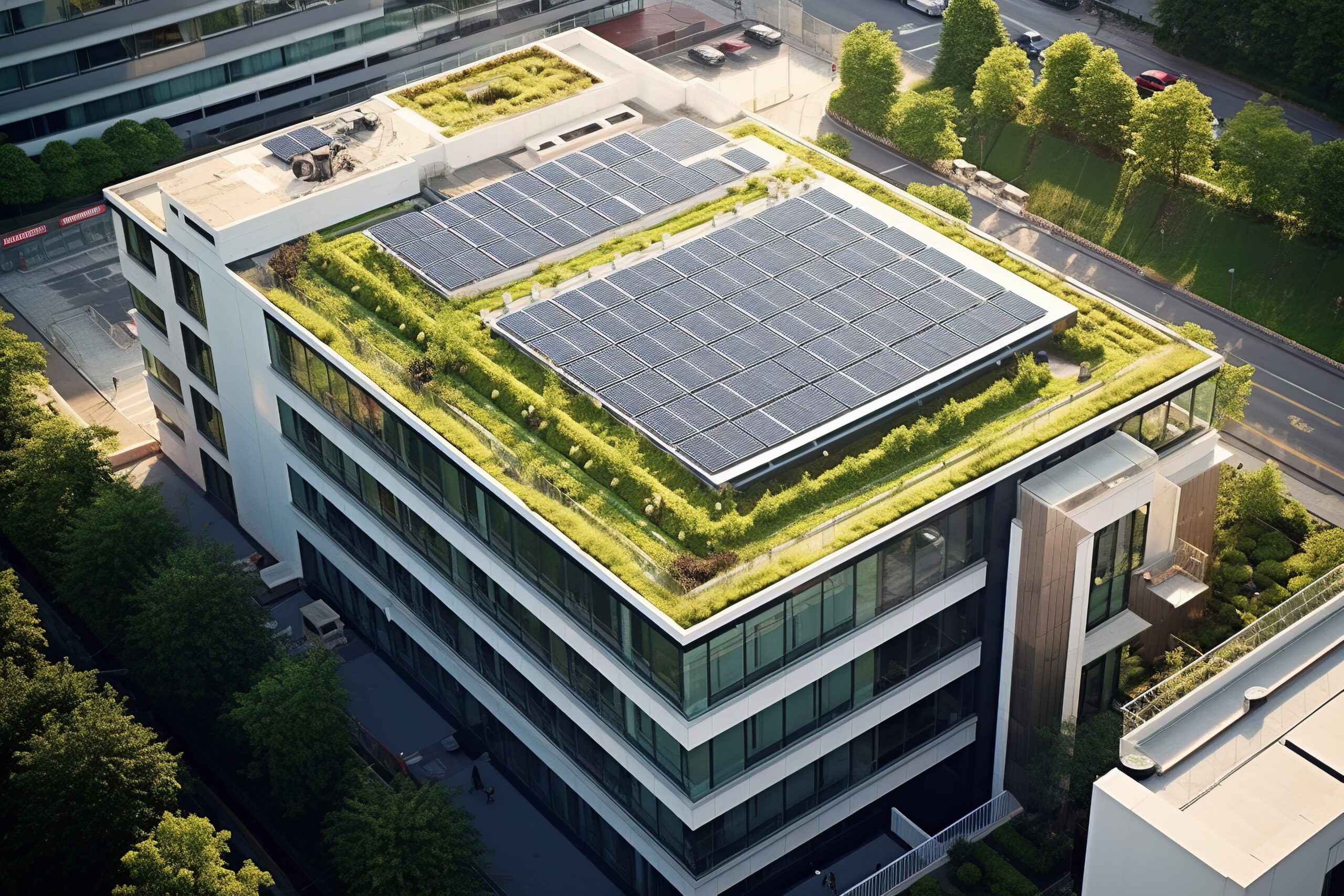
Dialogue with populations and communities: A key lever of social development
If the social development sector gets attention from both public and private players, this is because the emergence of solutions for the social integration of vulnerable people is facilitated by synergies emanating from a variety of stakeholders. Alongside governments, local populations, civil society, the private sector, communities and the vulnerable population groups themselves are working together to identify, test and bolster the most effective solutions and measures.
Whether the aim is to favor the social integration of young people via entrepreneurship or to rethink our approach to mobility in a low-carbon economy, the involvement of multiple stakeholders and the reshaping of their relationships are opening up new perspectives to achieve long-term growth. The ultimate goal is to come up with concrete solutions for a better quality of life in general.
When highly committed stakeholders and communities join forces
Developing individual skills through training and entrepreneurship
With this in mind, bringing citizens and their representatives closer together is an important first step. As a driving force for change, the public authorities are encouraged to be more accountable and to provide populations and citizens with greater visibility to the initiatives they pursue. Engaging in an ongoing dialogue is an initial step towards social development, as it can be the starting point for future actions that bring a positive impact.
In addition to public stakeholders, companies committed to make society more inclusive also get involved in these endeavors by facilitating dialogue between political representatives and citizens. This support takes the form of projects, pursued among others by company foundations in France and abroad. Via its Social development platform, the Rexel Foundation provides support for entrepreneurs whose various projects propose models and approaches that depart from traditional practices.
As an example, the Rexel Foundation and the Group’s teams are involved in India, notably through the financing of programs, and the organization of training and awareness building sessions on sustainable development topics and energy solutions. The objective is to help favor the social integration of young people from communities affected by exclusion. Indeed, 50% of young people do not continue their studies after secondary school in rural areas of India. This issue spurred the creation in 2018 of the “Green Village” in Raipur, designed to facilitate their professional integration. Intended to support the Skill India program launched in 2015 by the Indian government, and to facilitate access for young people to short technical training courses leading to a professional qualification, the “Green Village” project, deployed along with the LP4Y association (Life Project 4 Youth), makes use of innovative teaching methods based on entrepreneurship. The objective is to help young people achieve their life goals and encourage them to forge solid links with the labor market thanks to a network of partners and local stakeholders.

At a more practical level, the project seeks to train 720 young participants over three years (from 2018 to 2021) with the aim of creating 18 micro-businesses serving the community. This endeavor enables them to develop their professional know-how, particularly in the fields of renewable energy and sustainable development, as well as enhance their entrepreneurial spirit. This also provides them with an opportunity to improve key skills such as teamwork, English and IT.
Since 2018, 398 young people have benefited from the project which has brought positive impact to 3,200 people. These encouraging initial results lead to new initiatives as 15 young adults aged from 17 to 24 years old regularly join this project and undertake a residential program that comprises experiential learning via the management of economic micro-activities.

Supporting the emergence of solutions with positive impact
Other partnerships have also been established to help further social development, drawing upon the benefits of collective experience and support from public authorities. The Solar Impulse Foundation and the Michelin Foundation have joined forces to find ways and accelerate the transition towards a more sustainable, low-carbon economy. Together, they have launched “1,000 solutions to change the world”, a program which seeks to reconcile ecology with economy. The innovators put forward their solutions and must then undergo an evaluation process carried out by a group of independent experts. After an examination and selection phase, these solutions are presented to major local decision-makers and might receive the “Solar Impulse Efficient Solution ” label. This label is intended to highlight existing solutions which are both sustainable and profitable, and which have a positive impact on our quality of life.
More widely, this initiative forms part of the projects of the World Alliance, created in 2017 and run by the Solar Impulse Foundation, in association with the ADEME and the Ministry for Ecological Transition and Solidarity for the development of efficient solutions.
Favoring the development of replicable and efficient models
The social development sector has no borders and provides a constant source of new ideas for stakeholders who then develop efficient replicable models. This is the spirit of the partnership developed between the Michelin Foundation and the Institute for Sustainable Development and International Relations (IDDRI). The goal? To adopt new approaches to mobility in a low-carbon and resilient economy by reconciling the viewpoints of different stakeholders on topics of this kind. For this purpose, both organizations develop and apply an innovative approach in several countries to design new scenarios. By doing so, they strive to meet national objectives on transport by identifying the physical changes required to speed up the transition to carbon neutrality. To carry through this project, four international teams have been set up in Japan, Mexico, the United Kingdom and France.
For example, the Deep Decarbonization Pathways for Mobility (DDP Transport) project underway since 2017 and run by the IDDRI seeks to apply the main methodologies developed through this initiative in the transport sector. More specifically, the aim is to show how changes in this sector have a practical impact when it comes to modifying mobility times, distances and budgets. With transport accounting for 24% of energy-related global pollutant emissions in 2019, the synchronization of national plans, sector-specific global roadmaps and private sector strategies is essential. The analyses performed as part of this initiative support the dialogue with the experts and decision-makers in the sector and highlight areas for action, as part of local policies aimed at reducing these emissions.
Passenger transport, for example, was one of the topics studied in the DDP Transport initiative. In 2017, the international research teams initiated work aimed at analyzing possible courses of action for carbon reductions. They drafted an innovative methodology to develop deep decarbonization pathways for 2050, in keeping with the national sustainable development objectives and the Paris Agreement. The results of this work have been applied in the pilot countries but are also available to five other international initiatives with a view to briefing decision-makers on specific aspects of the sustainable transition in the passenger transport sector. It entails: analyzing sustainable mobility to understand the driving forces behind the transformation, assessing the reduction in emissions and proposing key transport-related information and indicators, in addition to comparing scenarios and long-term strategies, etc. To facilitate its replication, a toolkit (DDP tool) was created with a view to limiting global warming and to support inclusive dialogue between countries, towns, regions, companies, citizens and experts. Finally, it is used to set relevant and achievable emission reduction objectives as well as introduce related strategies.

Driven by a strong team spirit fueled by a continuous dialogue, the various stakeholders in the social development sector make emerge methodologies, measures and solutions which inject fresh dynamism into the relationships between residents, political bodies, private stakeholders.
See also : Social innovation projects supported by the Rexel Foundation

